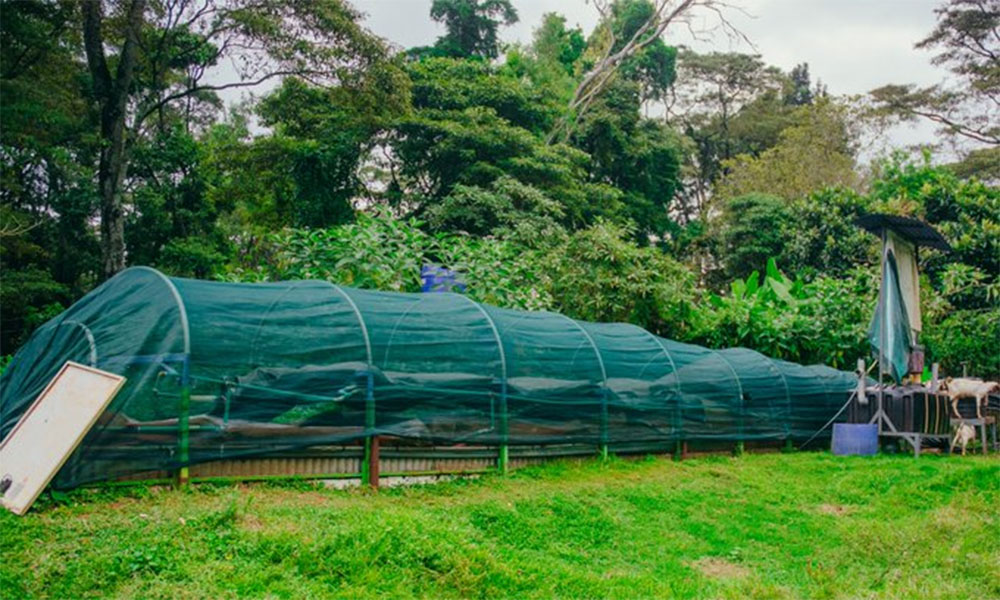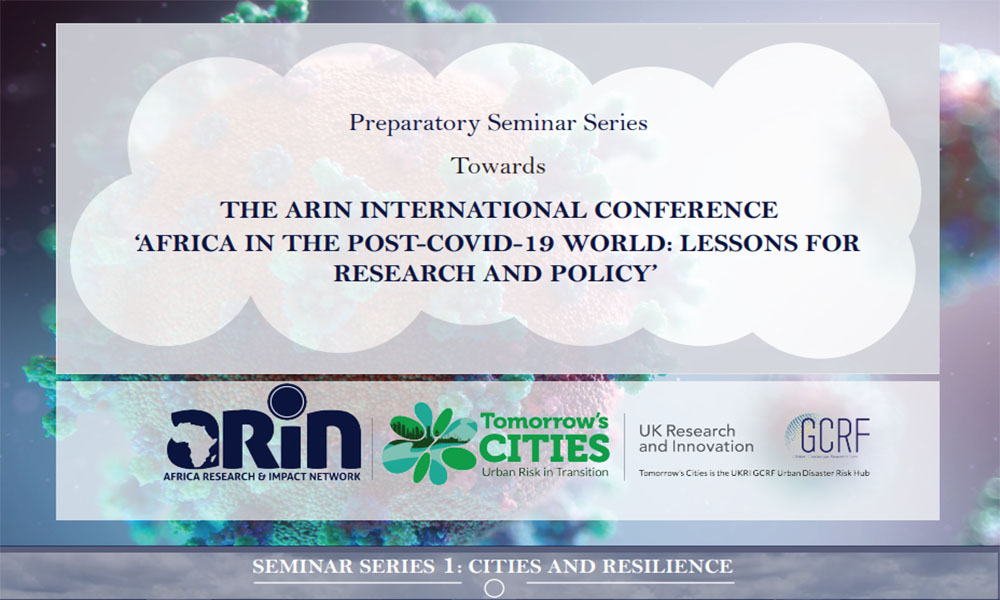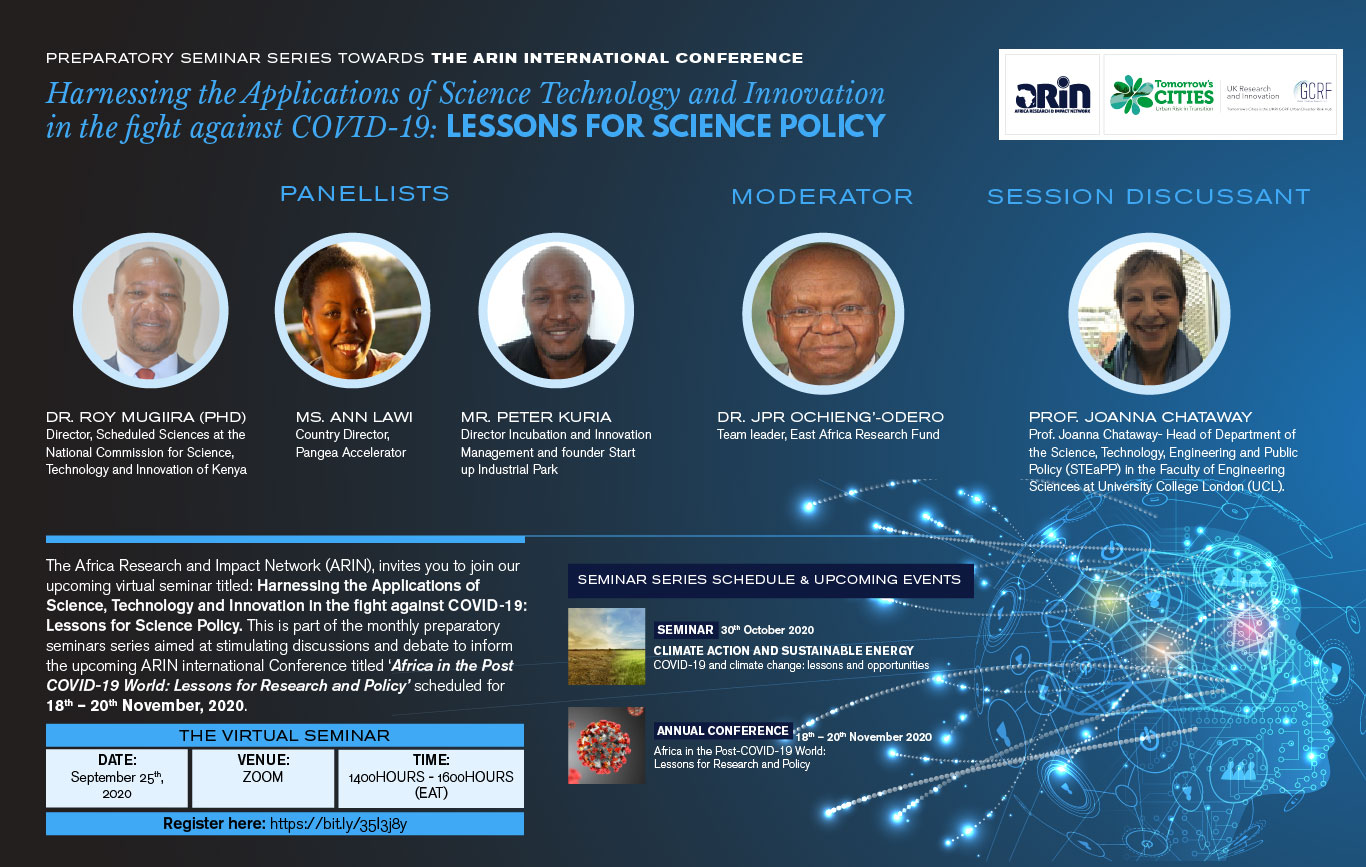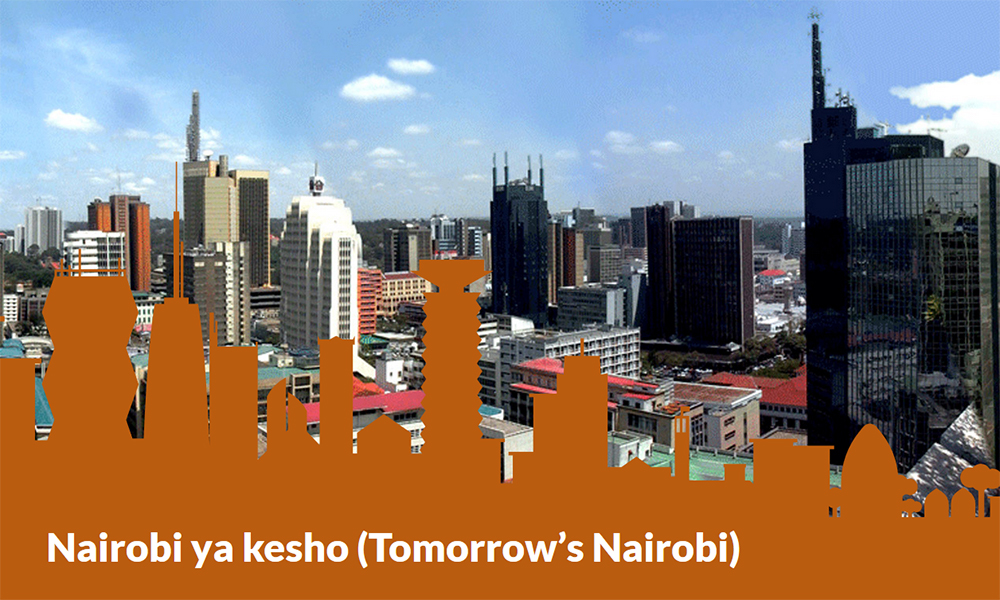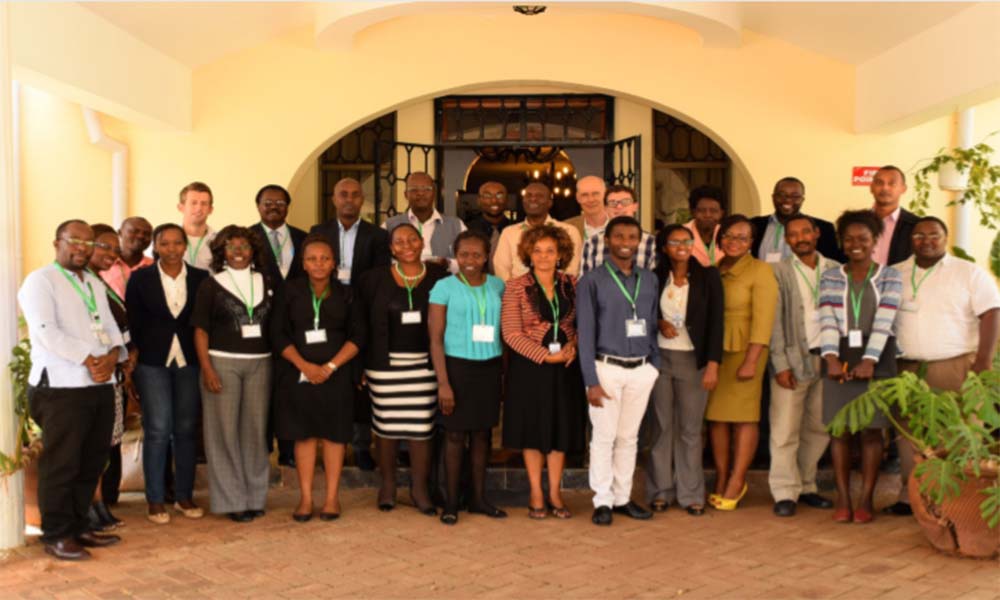-
What Impact has COVID-19 had on Energy use in Informal Settlements?
On Friday the 14th of August, 2020, ACTS hosted a webinar on INCLUSIVE ENERGY IN KENYA. The discussion particularly zeroed in on uses of energy…
Continue reading -
Imaginaries of Future African Cities: Sustainability and Resilience Post COVID-19
On Thursday 3rd of September, 2020, The Africa Research and Impact Network (ARIN) hosted a webinar titled ‘Resilient African cities: beyond COVID-19’. This is the first in a series…
Continue reading -
A call to Rethink Science Technology & Innovation Policies for Sustainability: Learning from the COVID-19 Pandemic
On Friday the 25th of September 2020, the Africa Research and Impact Network (ARIN) hosted an online seminar on ‘harnessing the applications of Science, Technology and Innovation in…
Continue reading -
Research Data Management for the Tomorrow’s Cities’ Nairobi Risk Hub
Position: Research Assistant Job title: Research Data Management for the Tomorrow’s Cities’ Nairobi Risk Hub The Tomorrow’s Cities Nairobi Risk Hub is seeking a qualified candidate for the position of a Research Assistant…
Continue reading -
Lessons for Africa’s research in the face of COVID-19
Authors: Joel Onyango, Joanes Atela ,Nora Ndege, The COVID-19 pandemic has brought many lessons to Africa’s research systems…
Continue reading -
The Visioning of a Future Resilient Nairobi
The Nairobi Risk Hub hosted a consortium of stakeholders on Friday 7th August,2020 in a webinar- ‘THE NAIROBI VISIONING WORKSHOP’. The workshop brought together key policy actors…
Continue reading -
Harnessing the Applications of Science Technology and Innovation in the Fight Against Covid-19 And Future Pandemics: Lessons for Science Policy
Authors:Nora Ndege,Joanes Atela and Kennedy Mbeva Introduction The COVID-19 presents a greater global challenge with detrimental health and socioeconomic…
Continue reading -
Policy Brief -CRIBS training-2
Using Climate Relevant Innovation-System Builders to Enhance Access to Climate Finance for NDCs Delivery insights from the CRIBS 2017 East Africa Policy Makers’ Workshop. Author: Reuben Makomere,
Continue reading -
Policy Brief -CRIBS training-1
Building Innovation Systems for Climate Change Technology Transfer: Perspectives from East Africa Author: Kennedy Liti Mbeva, Dr. Joanes Atela and Aschalew Tigabu
Continue reading -
Making Climate Finance Work for Africa: Using NDCs to Leverage Climate Finance for Innovation System Building
The workshop was organized by the Africa Sustainability Hub (ASH), a networked research and knowledge exchange hub that convenes world leading experts on innovation…
Continue reading

